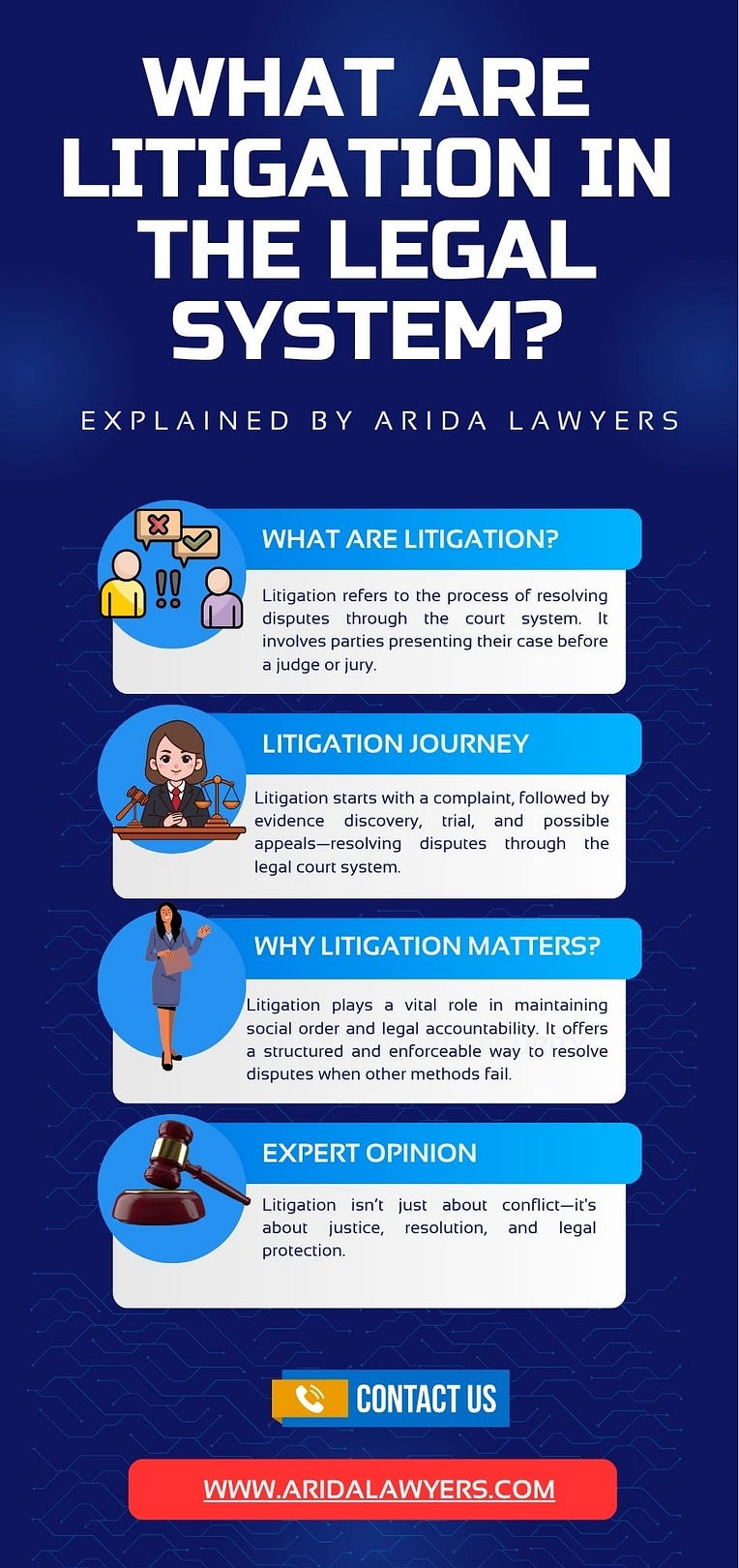What Are Litigation in the Legal System? Infographic Explanation
Explained by Arida Lawyers
What Are Litigation?
Litigation is the formal process of resolving disputes through the court system. It involves two or more parties presenting their arguments and evidence before a judge or jury, who then makes a legally binding decision. This process is essential to uphold justice, protect individual rights, and ensure that laws are properly enforced.

The commercial litigation journey typically begins with the pleading stage, where a complaint is filed and the opposing party responds. This is followed by the discovery phase, in which both sides gather evidence, conduct interviews, and prepare for court. Before the trial, pre-trial motions may be filed to clarify legal issues or attempt a settlement.
If the case proceeds, the trial allows each side to present their arguments and evidence. A judge or jury then delivers a verdict based on the facts and law. Afterward, the post-trial phase may involve appeals or the enforcement of a judgment.
Litigation can take many forms, including civil litigation — where individuals or organizations resolve issues like personal injury or contract disputes — criminal litigation, which involves the government prosecuting crimes, and commercial litigation that handles business-related conflicts. Each serves a distinct role within the legal system but follows similar procedural stages.
Why Litigation Matters and How It Compares
Litigation plays a vital role in maintaining social order and legal accountability. It offers a structured and enforceable way to resolve disputes when other methods fail.
Unlike mediation or arbitration, litigation involves the court and results in a binding legal judgment. While this makes it more time-consuming and expensive, it ensures due process and public record.
In comparison, mediation is a collaborative approach without court involvement and often results in informal agreements. Arbitration, although outside the traditional court system, leads to legally binding decisions but offers limited grounds for appeal. Despite alternatives, litigation remains the cornerstone of legal resolution for complex or high-stakes matters.
According to Arida Lawyers, one of the leading debt recovery lawyers in Parramatta
“Litigation isn’t just about conflict — it’s about justice, resolution, and legal protection.

Comments
Post a Comment